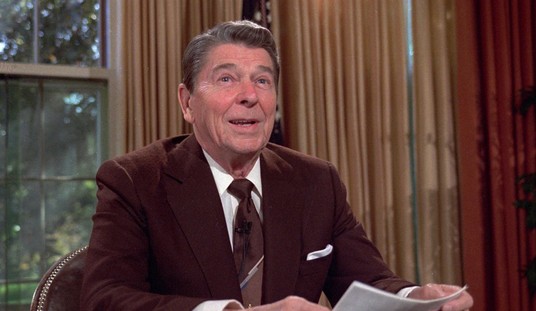“Oh To Be Young and Socialist Again,” Jonathan S. Tobin writes at Commentary:
If the polls are correct, in less than two months New York City will elect Bill de Blasio as its next mayor. A doctrinaire liberal, his impending victory seems to be, as Seth noted last month, the return of the Dinkins Democrats to power in New York after 20 years of Rudy Giuliani and Michael Bloomberg. De Blasio’s left-wing populism and hostility to both the business community and the police tactics that have helped fuel New York’s revival bode ill for the city’s future. But today’s New York Times gives us further insight into de Blasio that gives new meaning to the stories indicating that Gotham’s political balance of power is lurching to the hard left. In an effort to gain further insight to the Democratic primary winner’s character, the Times takes us back to de Blasio’s misspent youth when he was no limousine liberal but rather a full-blown hardcore leftist who traveled to Nicaragua to support the Marxist Sandinista government. Even before traveling to Central America, the Times tells us the future mayor had no doubts about his goal for society:
Mr. de Blasio became an ardent supporter of the Nicaraguan revolutionaries. He helped raise funds for the Sandinistas in New York and subscribed to the party’s newspaper, Barricada, or Barricade. When he was asked at a meeting in 1990 about his goals for society, he said he was an advocate of “democratic socialism.”
Of course, De Blasio characterizes his views differently today, calling himself a “progressive” and saying merely that seeing the Sandinistas up close merely motivated him to see that the government protects the poor. While he now says he disapproved of the suppression of dissenting views by the Marxist tyrants he backed so fervently, then it was a different story. Nor did he seem terribly interested in supporting human rights when he chose to spend his honeymoon in Communist Cuba, a decision that his daughter told the New York Daily News she thinks is “badass”—which is her way of saying she approves of the choice.
Because there’s nothing more “badass” than playing the part of omnipotent tourist, posing amidst the rubble of a socialist state and its enslaved people, and then hopping onto a 737 back to freedom the next day.
Meanwhile, oh to be middle-aged and socialist. Or as Glenn Reynolds writes in his latest USA Today column, “Obama selfish, stubborn on health care:”
Indeed, one reason, I suspect, that he’s set down a red line on ObamaCare is that it’s pretty much the only legislative accomplishment he can claim as his legacy. The problem with that is that ObamaCare was unpopular in 2010 (that’s why Speaker Nancy Pelosi, who crammed it through, is no longer speaker, but a minority figure in a GOP-controlled House). ObamaCare has become, if anything, even more unpopular now as costs have risen way beyond projections even as the number of people covered has shrunk to less than half of what was advertised. People are losing their insurance — or their jobs — as policies are canceled and employers shift to part-time hiring in order to escape ObamaCare’s onerous restrictions. It’s no wonder that an NBC poll a week ago found that 45% of U.S. adults say that the Affordable Care Act will make the health care situation in the U.S. worse, while only 23% say the law will make it better. And as ABC notes, currently 52% oppose the law, and, even more striking: “In 16 ABC-Post polls since August 2009, it has never received majority support.”
Now, in spite of these sentiments, Obama will negotiate with Iran or Syria, but not with the House Republicans. And if the Senate passes the House bill and sends it to him, Obama will presumably enforce this red line and veto the budget, plunging the nation into a government shutdown.
That has risks for everyone. The GOP, of course, didn’t do so well in the Gingrich-Clinton faceoff, and many Republican leaders obviously fear a repeat, where they get blamed for the president’s refusal to compromise. But for Obama, there are risks, too. One is that the government shutdown happens, and nobody cares much — which has pretty much been the story of the sequester, our last budget bugbear. Faced with a tiny percentage cut in government, most voters yawned, or cheered, or moved on oblivious. Obama’s biggest worry should be that if big government shuts down, the same thing will happen.
Another risk is that a shutdown will contribute to an already growing sense of chaos and incompetence at the top. Obama can blame Republicans all he wants, but his party controls the White House and one house of Congress — two-thirds of the elected levers of power in Washington. If he can’t run the country with the White House and the Senate … well, maybe he just can’t run the country. After Syria, he’s lost a lot of credibility abroad; if he can’t keep the government from shutting down at home, he’s likely to lose credibility here as well, no matter how much finger-pointing he does. Ultimately, if the country seems to be in chaos, it’s the president who gets blamed.
Particularly when, like his red line in Syria, Mr. Obama brought his current domestic debacle on himself, when his ego wrote yet another taxpayer check his body couldn’t cash:
The most important red line of Barack Obama’s presidency was scrawled hastily in January 2007, a few weeks before he even announced he was running for president.
Soon-to-be-candidate Obama, then an Illinois senator, was thinking about turning down an invitation to speak at a big health care conference sponsored by the progressive group Families USA, when two aides, Robert Gibbs and Jon Favreau, hit on an idea that would make him appear more prepared and committed than he actually was at the moment.
Why not just announce his intention to pass universal health care by the end of his first term?
Thus was born Obamacare, a check-the-box, news-cycle expedient that would ultimately define a president.
“We needed something to say,” recalled one of the advisers involved in the discussion. “I can’t tell you how little thought was given to that thought other than it sounded good. So they just kind of hatched it on their own. It just happened. It wasn’t like a deep strategic conversation.”
It’s not exactly fair to call Obama a reluctant warrior on health care reform — not after all he has staked on the biggest single roll of the legislative dice in a half-century. But it took him years to evolve from a skeptical neophyte playing catchup to Hillary Clinton and John Edwards to a chief executive willing to risk his political capital and legacy and the fate of his own party on the principle of affordable, subsidized, government-mandated national health coverage.
The consequences of that offhand promise are still reverberating. Its greatest test lies just ahead on Oct. 1, opening day for enrollment in Obamacare. A flop would be nothing short of the greatest political and policy cataclysm of his career and a mortal blow to a core Democratic principle that government can still do big things.
Lyndon Johnson, who paid the price for magically believing that the government could be all things to all people, call your office.
Related: By the way, the great thing about President Obama is that his policies don’t benefit the wealthy One Percent. Oh wait:
Today some complain of a “rich man’s recovery,” but isn’t this exactly the recovery our policies have selected for? The rich derive their incomes disproportionately from assets, and the Fed’s explicit contribution has been to boost asset prices. The middle class derives its income mainly from jobs, but jobs have been willingly sacrificed to Washington’s other agendas. Example: a health-care law that punishes companies for hiring more than 49 workers or employing them for more than 29 hours a week.
Hey, nobody said it was easy being President Goldman-Sachs.










Join the conversation as a VIP Member